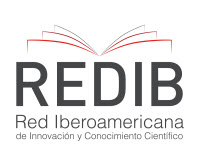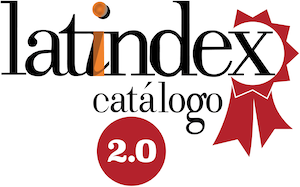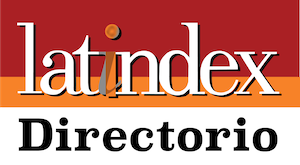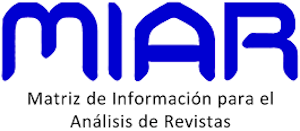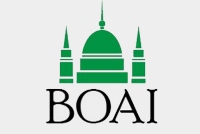Ethics in the ecuadorian public accountant training Curriculum
DOI:
https://doi.org/10.32645/13906925.1212Keywords:
Ethics, attitude, curriculum, integral formation, professional ethicsAbstract
The incorporation of ethics as a transversal axis in the training curriculum of public accountants constitutes a key element to foster a reflective and behavioral attitude that promotes the exercise of human values, respect for the principles of the profession and compliance with legal provisions. For the study development, a quantitative approach, a descriptive research level and documentary design were used. The research work starts from the identification of the universities that offer the accounting
and auditing career, to extract the curricula of each institution and finally analyze the inclusion of subjects related to ethics, the accountant quality, professional deontology, values, social and business responsibility, among other disciplines that contribute to the formation of the general ethical postulates of the accounting profession. A total of 60 universities were analyzed; 34 were public, 18 were private and 8 were co-financed; from this conglomerate of institutions, 16 were discriminated against because they did not fit the purposes of the study. The practice of accounting requires a solid and interdisciplinary
professional training, complemented by the teaching of ethics, in order to achieve a comprehensive training that allows the professional to face and respond to the dilemmas and challenges of today’s world. The study concludes by identifying that 66% (high level) of the students of the universities of Ecuador have an ethical-professional training, by incorporating in the curriculum at least one subject related to ethics.
References
Hirsch Adler, A. (2010). Etica, valores y diversidad sociocultural. Mexico: Dias de santos S.A.
Horngren, C., Harrison, W., & Smit Bamber, L. (2003). ACCOUNTING. Mexico: PEARSON Prentice Hall.
Blanco, L. A. (2013). Etica integral. Bogota: Ecoe ediciones.
Castillo Padron Yoania et al. (2020). La formación ética desde la institución universitaria. Una propuesta para el estudiante de la licenciatura en contabilidad y finanzas. Revista Universidad y Sociedad, 135-139.
Gonzalo , J., & Garvey, A. (2009). Ética y enseñanza de la contabilidad (una propuesta de discusión). Contaduría Universidad de Antíoquia, 11 - 42.
Honorable Concejo Universitario. (19 de Noviembre de 2013). Código de ética . Universidad Central del Ecuador, págs. 3-7.
Horngren, C., Foster, G., & Datar, S. (2010). CONTABILIDAD DE COSTOS UN ENFOQUE GERENCIAL. Mexico .
Hortal, A. (2000). Docencia, En adela conrtina Y Jesúas Cornill (coords). 10 palabreas claves en las profesiones, Navarra, Verbo Divino, págs. 55-78.
Leung, P., & Cooper, B. (1994). Ethics in Accountancy: A classroom experience. Accounting Education, págs. 3(1) 19-33.
Maida, A., & Perez, G. (2011). 6La formación del criterio profesional del Contador y su importancia en el campo laboral. Mendoza: Universidad Nacional de Cuyo
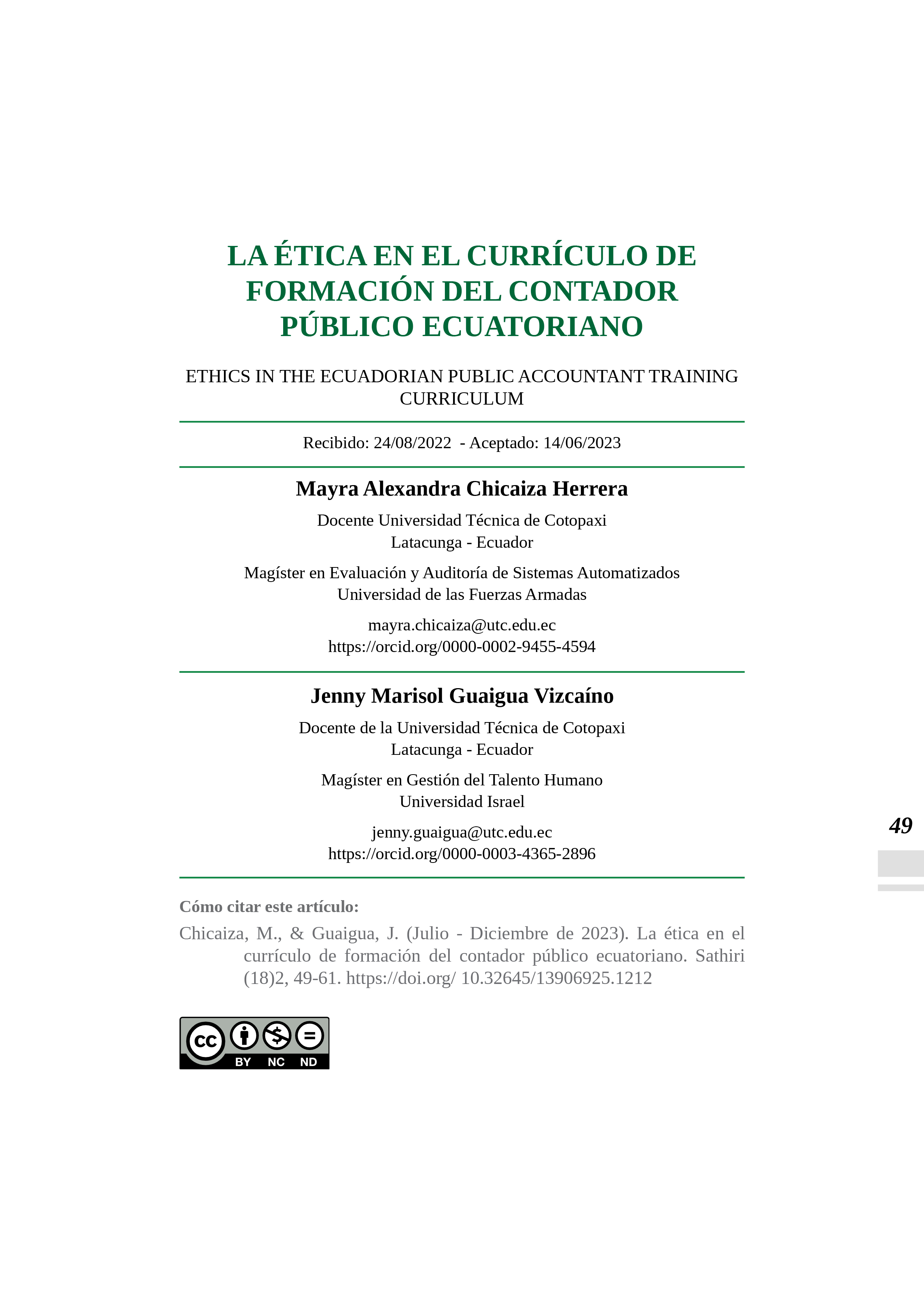
Downloads
Published
Issue
Section
License
Copyright (c) 2023 Mayra Alexandra Chicaiza Herrera, Jenny Marisol Guaigua Vizcaíno

This work is licensed under a Creative Commons Attribution-NonCommercial-NoDerivatives 4.0 International License.
El autor mantiene los derechos morales e intelectuales de su obra, autorizando a la editorial de la revista Sathiri la difusión y divulgación de su contenido con fines estrictamente académicos y de investigación, sin fines de lucro. Así mismo, se autoriza que la obra sea descargada y compartida con otras personas, siempre y cuando no sea alterada y se reconozca su autoria.






